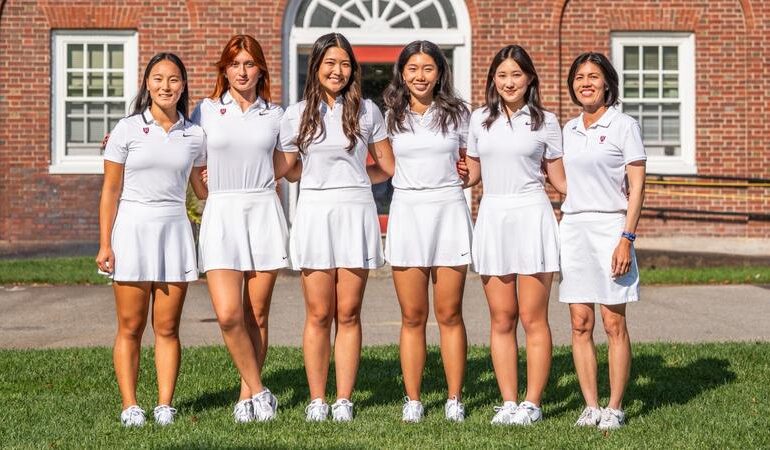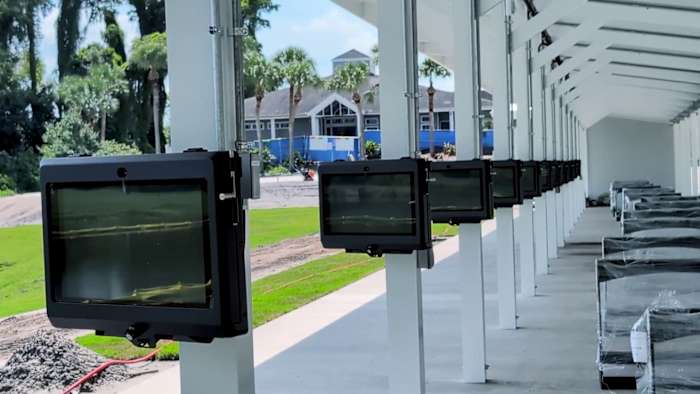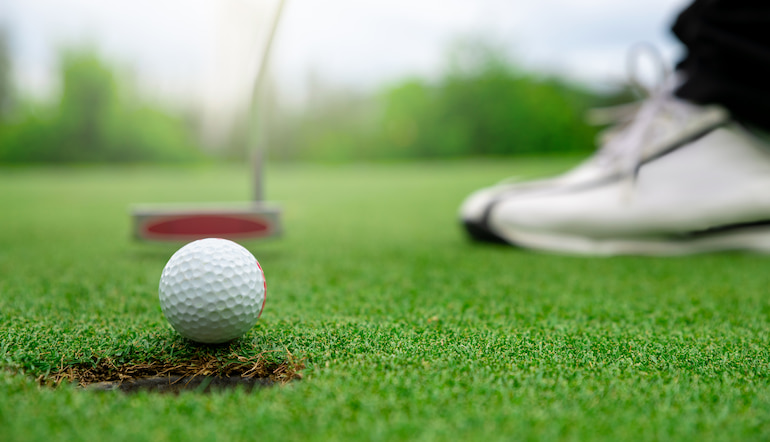 Can the U.S. team repeat its champagne shower of 2021? Keyur Khamar, PGA Tour via Getty Images
Can the U.S. team repeat its champagne shower of 2021? Keyur Khamar, PGA Tour via Getty Images
Editor’s note: “In Case You Missed It” is a GGP+ feature that highlights a story from Global Golf Post‘s Monday magazine.
To this point, before the first hole has been lost and the first bit of second-guessing has inevitably rippled across social media, Keegan Bradley has nailed the job of being U.S. Ryder Cup captain.
That’s an achievement in itself given the scrutiny that now comes with what can feel like the highest office in American golf.
Grace, respect, understanding, tenacity – Bradley has demonstrated all of those traits in his one year-plus term as the most unexpected Ryder Cup captain in memory.
Not only do the players and the public see Bradley in a different light, he feels differently about himself. He’s let his guard down, doesn’t see other players as his opponents and justifiably feels like an insider after years of intentional isolation.
For however much captains and their assistants matter in these matches, Bradley and his cabinet – Jim Furyk, Webb Simpson, Kevin Kisner, Brandt Snedeker and Gary Woodland – represent a new vanguard for the American model. Furyk, who captained the 2018 U.S. squad, is the designated “old head” in the room, a Yoda of sorts to dispense wisdom from experience when needed.
Bradley has been a sponge, seeking advice from leaders inside and outside of golf, immersing himself in his duties to ensure that when the noise and nerves kick in at Bethpage Black in another week, he’s done everything to have his team ready.
His counterpart, European captain Luke Donald, has the advantage of reprising the winning 2023 team almost to a man, with the fresh challenge of becoming only the second side to win on the road in the last 10 Ryder Cups, at a spot with scorched-earth crowd potential.
The theme at the Procore Championship last week, where 10 of the 12 American players teed it up – Xander Schauffele took the week after becoming a father for the first time and LIV Golf’s Bryson DeChambeau was on site as head cheerleader – was unity.
“This group of players, they’re truly friends and they’re friends off the golf course, which in my teams that I played before this, I don’t know if we exactly had that as much as this group does. They really care about one another,” Bradley said last week.
Had the theme been anything else it would have been concerning. It’s as familiar as the “Liberty, Liberty, Liberty” jingle.

These past few weeks have been like NFL training camps, defining the roster, determining strengths, and bonding. Every team leaves camp talking enthusiastically about what’s ahead before finding itself up against the Buffalo Bills or the Philadelphia Eagles where it takes more than kumbaya to win.
It’s worth remembering that Michael Jordan’s Chicago Bulls teams were defined as much by their internal tension as their on-court dominance. The same was true of the New York Yankees in the 1970s and the Kobe-Shaq years when the Los Angeles Lakers were winning NBA titles in the early 2000s.
Those teams won on sheer will and overwhelming talent. This American team has the talent but the European team is every bit as strong top to bottom, a tick stronger in some minds, adding to the intrigue of this Ryder Cup.
As for the will part, it’s fair to assume that’s what Bradley has sought to heighten through his team dinners and having the bulk of his team in Napa, California, last week. Professional golfers are built to play for themselves but the Ryder Cup asks players to play for something bigger.
The European side mastered that long ago but there are times – Whistling Straits four years ago – when camaraderie can’t overcome too many good players at the top of their games. The Americans, with what should be a raucous home-course advantage, sound like they’re a band of brothers even though they may sometimes be talking about the lease deals on their private jets.
It’s been used a million times but there is something to the lesson of turning fingers into a fist. Spread five fingers wide and feel how strong they are. Pull those fingers into a fist and compare the difference.
There are examples on both sides of the Ryder Cup that exemplify the impact of what Bradley and his team are chasing. It showed in 1999 at The Country Club with the celebration over Justin Leonard’s famous Cup-defining putt, an emotional eruption that still irks many on the European side who long insisted the Americans didn’t care as much about the Ryder Cup only to criticize them when they showed how much they cared.
The Ryder Cup stands apart because it creates different feelings, playing on emotion more than any other golf event (though McIlroy’s Masters victory this year touched hearts around the world). It asks us to pick sides, to smile when the other team misses, to learn the difference between foursomes and four-balls.
The spirit of Seve got credit for Europe’s scintillating comeback victory at Medinah in 2012, captain José María Olazábal seeming to cast a spell over his players that should serve as the example of what can happen when 12 become one.
Think back to scenes from previous Ryder Cups:
Ian Poulter’s bulging eyes. The normally stoic David Duval punching the air after winning a hole. Tom Lehman galloping onto the green at The Country Club. Ben Crenshaw finger-wagging about fate. Rory McIlroy with tears of disappointment running down his cheeks.
The Ryder Cup stands apart because it creates different feelings, playing on emotion more than any other golf event (though McIlroy’s Masters victory this year touched hearts around the world). It asks us to pick sides, to smile when the other team misses, to learn the difference between foursomes and four-balls.
While Donald and the Europeans were outside London at the BMW PGA Championship last week with a get-reacquainted-with-Bethpage trip on the itinerary this week, Bradley and his American team sat around their own version of a campfire last week.
The Ryder Cup is three days that can last a lifetime.
“I think as a kid in sports you always are craving that team atmosphere. With golf we don’t get that ever. When you’re playing for your country in any sport, it heightens all of that. I think for us, we really only get one time a year to do this. When you’re a part of it, it changes you forever, it really does,” Bradley said.
© 2025 Global Golf Post LLC







